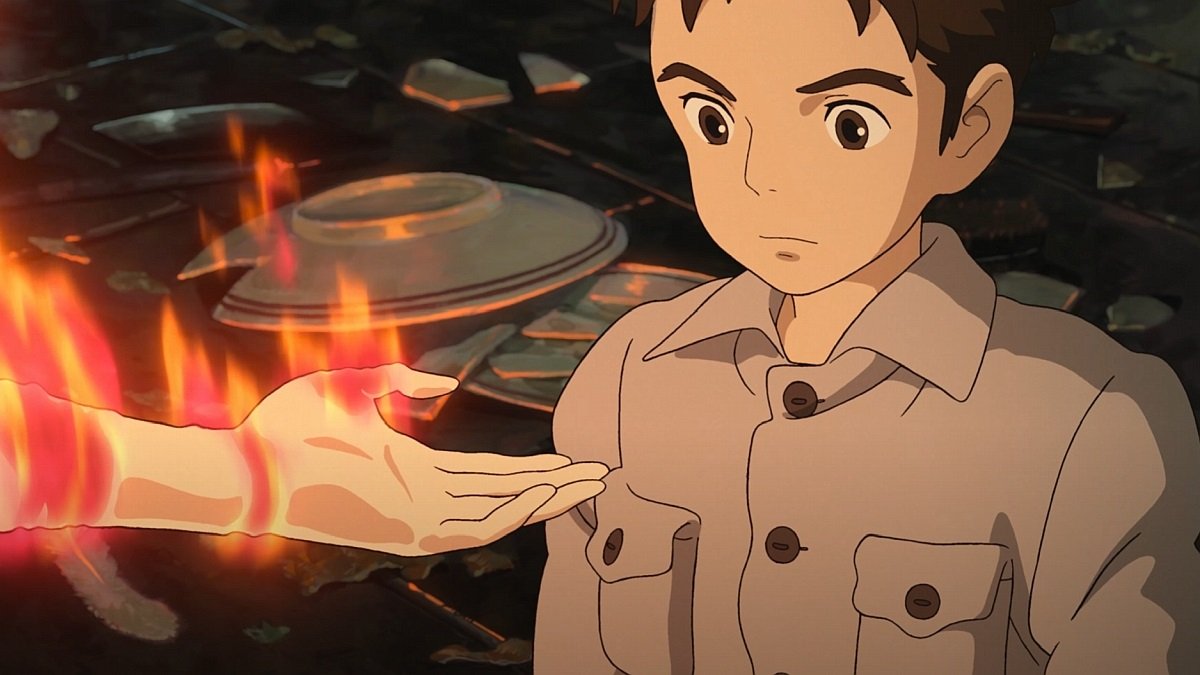Andrew’s Take:
It is entirely possible to walk into The Zone of Interest – the long-awaited new film from Under the Skin’s Jonathan Glazer – without knowing that it’s about the Holocaust. The theatrical poster simply displays an idyllic family gathering below a looming blackness in the negative space above. The words “Holocaust” and “concentration camp” don’t appear in either of the film’s trailers, but those who know what to look for will recognize occasional SS uniforms and the rooftops of Auschwitz peeking over the edges of certain foregrounded images.
The Zone of Interest depicts the Holocaust from a vantage point almost too despicable to imagine: those who perpetrated and benefited from it. More specifically, the film captures the humdrum daily life of Rudolf Höss, the longest-serving overseer of Auschwitz, who lives in an ornate mansion just over the camp’s walls. The audience almost never sees him spending time in the extermination camp itself, but rather in meetings and phone calls where he’s going over architectural designs and negotiating where flowers should be planted, perhaps to give him something to look at when he makes his eventual rounds.
We spend just as much time with his wife (given a disturbingly cheerful performance by Sandra Hüller), who fancies herself “the Queen of Auschwitz” and sees her family’s situation as a fairy tale ending after a lifetime of hard work and ladder-climbing on the part of her husband. We watch her try on expensive furs and gift the rejects to her Polish slaves, an action she presumably sees as evidence of her own generosity and kindness. During polite conversations over tea, the audience sometimes hears the echoes of distant screams.
This is not to suggest that the film assumes the POV of these characters – rather, Glazer’s camera lens feels like an alien, omniscient force hanging just above the eyelines of these characters, surveilling and studying them with a cold, unblinking gaze in their most intimate and mundane moments. We watch these characters walk from room to room in a house that never coheres into an imaginable blueprint but rather feels a never-ending labyrinth of excess and emptiness. We see their children playing with toys and imitating their father with pride and admiration.
Hannah Arendt’s famous phrase, “the banality of evil” can’t help but jump to mind when witnessing these architects and beneficiaries of genocide go about their daily lives, but perhaps an equally relevant concept is that of compartmentalization – the way in which the human mind puts up walls between ones central consciousness and the images it finds too disturbing to confront directly. In The Zone of Interest, we never directly see the violence of the Holocaust, an atrocity so monstrous that even its most openly sadistic perpetrators had to dress it up in coded language and view it as a distant abstraction.
Compartmentalization on this scale is, of course, never truly possible. The horrifying truth of what these people are doing is too great an evil to ever be completely ignored, an idea that is reflected in the film’s singular editing choices. Although the majority of its runtime is spent focusing on the things that the Höss family would rather occupy their minds with, there are a few key and powerful moments throughout the film when other perspectives abruptly and profoundly make themselves known. It is in these enigmatic moments that Mica Levi’s dark, rumbling score surfaces, guiding the viewer through nocturnal odysseys shot in stark black and white. These moments – which remind me that what most critics today call “slow cinema” was originally coined “transcendental style” – can only be explained by considering the way in which these disparate threads connect to one another on a spiritual level.
Perhaps The Zone of Interest’s most radical idea is that fascists, like all humans, have something akin to a soul or perhaps a sense of right and wrong – but the dehumanizing systems of bureaucracy they construct allow them to circumvent their own inconvenient complicity. The Nazis centered by The Zone of Interest are not mawkish, cartoonish caricatures of “bad guys” in the way that Nazis have been depicted in pop culture fluff like Raiders of the Lost Ark and Jojo Rabbit – nor are they distant forces of unimaginable malevolence as they often are in stories that center Jewish suffering and death. Here, they are cold, calculated businessmen and politicians interested only in maintaining their own hegemony.
When we see fascists this way – as they are – it is much easier to recognize the evil they threaten to carry out again in the United States, as well as the evil they continue to carry out across the globe. The ongoing genocide of the Palestinians in Gaza and the West Bank, as well as the ongoing genocide of the Uyghur people in China are not simply the result of a single tyrant going on a manic, destructive rampage, but rather the result of countless board meetings and contractual agreements between horrifyingly ordinary people who have somehow convinced themselves of their own innocence.











